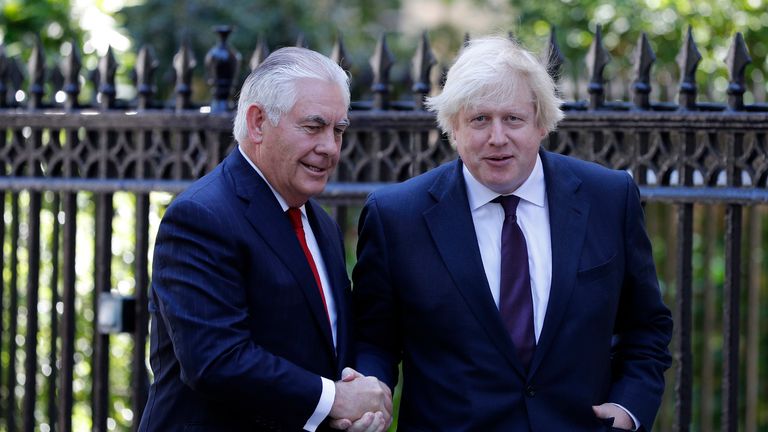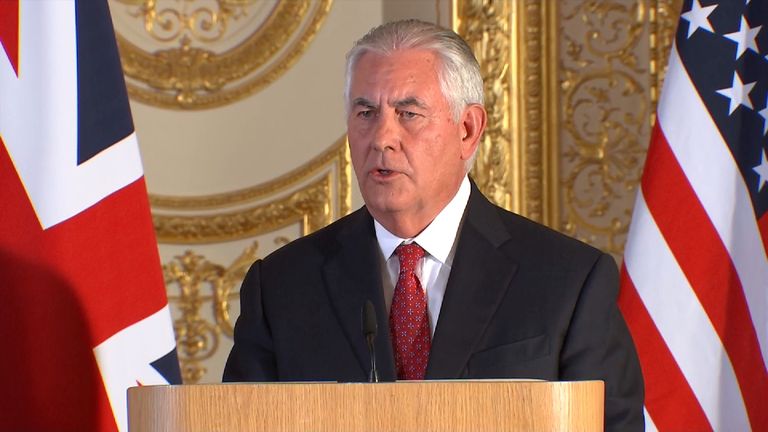Boris Johnson and Rex Tillerson's diplomacy comes too late to save Myanmar victims
Johnson and Tillerson may have much in common but jointly calling on Aung San Suu Kyi to speak out will not help the Rohingya.
Thursday 14 September 2017 22:43, UK
Boris Johnson and Rex Tillerson come from two different worlds but will have found much in common as they talked in the regal splendour of Lancaster House in London.
Perhaps they compared notes on the fact they are both the subject of rumours they are on the verge of resigning, because they are so fed up with their jobs.
Or they may have consoled each other knowing they are both under pressure from a chorus of critics to stand down.
They might have bonded over the fact they are both accused of being unqualified and unsuitable for their jobs.
What they have most in common, though, is a responsibility for preventing the world going to hell in a handcart at time when it appears to be accelerating in that direction. And that is surely what will have preoccupied them most.
Rex Tillerson has been derided as a reluctant Secretary of State - unsurprisingly after he told one journalist he only took the job because his wife told him to.
And more recently he has been criticised as an absentee one, too. America's chief diplomat has kept a strangely low profile as his administration faced its toughest foreign policy test yet: the nuclear crisis with North Korea.
He and Boris Johnson share a mutual ambition to see a 'denuclearised Korean Peninsula', said the latter in a press conference on Thursday.
That betrays a common weakness for wishful thinking.
North Korea is on the threshold of becoming a fully fledged nuclear power, fulfilling a dream nurtured by three generations of the tyrannical Kim family. Most foreign policy analysts cannot see a way of stopping that happening.
There was more fantasy foreign policy with their shared hope that Libya is heading towards elections. Boris Johnson called it a realistic prospect within 12 months.
Most who know the country and its politics - dominated as it is by myriad armed factions - will find that belief wildly optimistic.
They also discussed the ethnic cleansing of the Rohingya in Myanmar.
They both aimed their fire at Myanmar's military, praised Aung San Suu Kyi's past achievements and gave her the benefit of the doubt.
They hope she will soon speak out against the army she shares power with and shame it into stopping one of the most barbarous military operations of the 21st century.
They know that public criticism of Myanmar's stubborn leader is only likely to be counterproductive.
They called on Myanmar to stop what Tillerson called the horrors of that campaign and, said Johnson, allow the Rohingya to return.
Diplomatic pressure will intensify to that end at the UN General Assembly next week.
But for hundreds of thousands of destitute stateless people living in squalid camps in Bangladesh it all comes too late.







